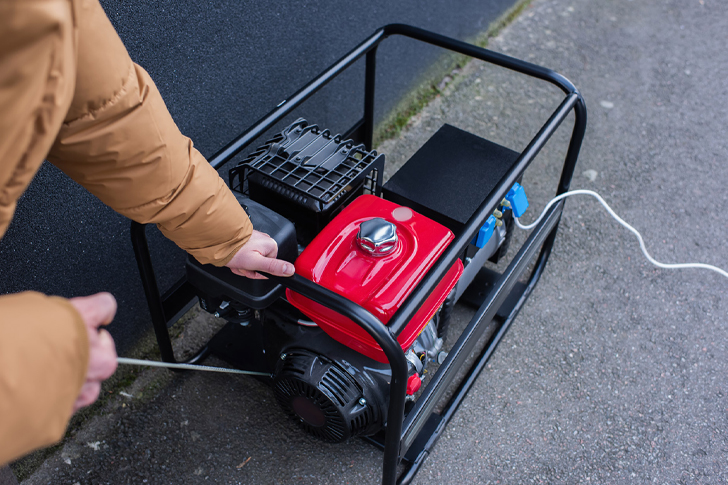Guide to Cheap Generators for Seniors: Ensuring Comfort & Safety
Generators are essential tools for ensuring comfort and safety during power outages, which can be particularly concerning for seniors who rely on electrically powered medical devices, heating, and cooling systems. However, the cost of purchasing and maintaining a generator can be significant. This article offers practical advice on how seniors can acquire affordable generators without compromising quality or safety.

**Finding the Right Type of Generator**
The first step in acquiring an affordable generator is to determine which type suits your need. There are generally two types of generators: portable and standby. Portable generators are less expensive and can be a good choice for those who only need emergency power occasionally. On the other hand, standby generators are more expensive but provide a more reliable power supply.
For seniors, portable generators might be more appropriate due to their affordability. The average cost for a reliable portable generator is typically between $500 to $1,000, whereas a standby generator generally costs from $2,000 upwards, not including installation fees which can average around $5,000 according to Consumer Reports.
**Considerations When Choosing Your Generator**
When selecting a generator, consider the following to ensure you’re making a cost-effective and safe choice:
– **Power Needs**: Evaluate the essential items you need to power. For most seniors, powering a refrigerator, a few lights, and medical devices are imperative. Calculating your exact power needs can prevent over-investing in a unit with unnecessarily high output.
– **Fuel Efficiency and Type**: Fuel type can impact the operating cost of a generator. Gasoline, while commonly available, might not be the most cost-efficient or easy to store and handle. Propane and diesel are alternatives that offer longer storage with stable prices. Solar-powered generators are also an excellent long-term, cost-effective solution, though they come with a higher upfront cost.
– **Durability and Maintenance**: Purchasing from reputable brands might seem more expensive initially, but their reliability often translates to fewer repairs and replacements down the line. Additionally, consider the warranty and service agreements that come with your generator.
– **Portability**: Especially for seniors, a generator that’s easy to move can be beneficial. Models with ergonomic designs and wheels can enhance ease of use during emergency situations.
**Discounts and Assistance Programs for Seniors**
There are several ways seniors can obtain generators at a discounted rate:
– **Senior Discounts**: Some retailers offer discounts to seniors. It is always worth asking about any available senior discounts when purchasing a generator.
– **Energy Assistance Programs**: Many utilities and governments have energy assistance programs that help seniors with energy-related expenses. For instance, the Low Income Home Energy Assistance Program (LIHEAP) in the USA helps eligible individuals manage cooling and heating costs.
– **Rebates and Tax Credits**: In some regions, purchasing energy-efficient appliances, including generators, may qualify for rebates or tax credits. These financial incentives can significantly reduce the cost.
– **Grants and Charities**: Certain nonprofits and community organizations provide grants to help seniors manage emergency preparedness expenses, including purchasing a generator.
**Buying Used or Refurbished Units**
Purchasing a used or refurbished generator can significantly reduce costs. However, it’s essential to ensure the unit is in good working condition:
– **Purchase from a reliable source**: Buy used generators from reputable suppliers or stores that offer guarantees or returns.
– **Inspect the unit**: Have a professional inspect the unit before purchase to ensure it does not have potential issues.
– **Check the run time and maintenance history**: Low runtime and well-documented maintenance point to a well-maintained unit.
**Conclusion**
Acquiring a generator need not be prohibitively expensive. By understanding different types of generators, accurately assessing your needs, and exploring various avenues for discounts, seniors can make a cost-effective and safe choice.







Recent Comments